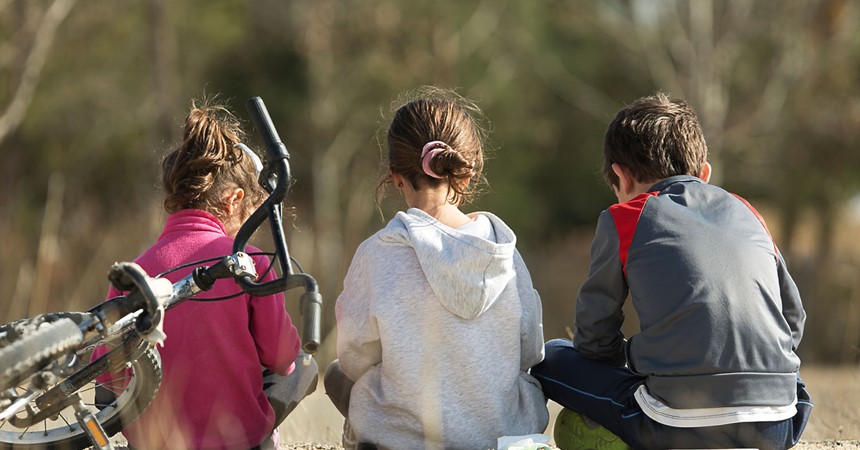On 1 September, coinciding with National Child Protection Week, Zimmerman Services will upgrade to the Office of Safeguarding under the direction of Sean Tynan. Part of the transition relates to regulation, and the Office of Safeguarding certainly has a larger mandate. But there is a more significant element.
“It is vital for a number of reasons,” Mr Tynan said. “There is the compliance element, but it is actually about the Diocese rebuilding a sense of trust and belief that it is a safe place for children.
I know some people will be cynical about this and I respect people being cautious and wanting to see evidence of change, but you can’t deny the facts. The Diocese is committing significant new resources, employing more specialist investigators, increasing our training obligations and improving governance and compliance across our many services.”
The Office of Safeguarding is the structural expression of the Diocese’s commitment to demonstrate the highest standards of recognising and upholding the dignity and rights of all children.
“It’s our job to make sure all the different parts of this Diocese, which is a large and complex organisation, meets those standards, and that we make safeguarding of children and vulnerable adults an absolute core component of who we are, and what we do,” Mr Tynan said.
The Diocese’s safeguarding obligations are multifaceted and include compliance with the National Catholic Safeguarding Standards, which were approved by the Australian Catholic Bishops Conference in May this year, along with legal obligations under the NSW Child Protection Statutes.
Bishop Bill Wright believes establishing the Office of Safeguarding with its expanded mandate and increased resources “is the next logical evolution of Zimmerman Services”.
“We are committed to extending and developing the sophistication of our auditing and compliance regimes to ensure our policies, procedures and organisational structures promote a culture of safeguarding children and vulnerable adults as a vital expression of our Catholicism and a central tenant of professional practice,” Bishop Bill said.
“We are committed to implementing and maintaining compliance with the National Principles for Child Safe Organisations and the National Catholic Safeguarding Standards. We will work with the NSW Office of the Children’s Guardian to develop and then implement the NSW standards for child- safe organisations.”
Bishop Bill described the events that led to the formation of Zimmerman Services as a “silent tragedy”. He said during the mid and later 20th century “across our society’s institutions, a terrible number of children were the victims of child sexual abuse”.
“Our own Diocese was particularly affected,” Bishop Bill said. “Abuse was committed by men associated with our Diocese, both clergy, religious and laity. Compounding the harm caused by these crimes was the abject failure of Diocesan leadership to ensure that perpetrators were stopped and brought to justice.”
Zimmerman Services originally derived from Beverly Zimmerman, a Sister of St Joseph, and the second female chancellor of this Diocese. She was an extraordinary teacher and educator, but it was her work in 2006-08 that helped establish the child protection service as it now is. Bishop Michael Malone had the idea, but Sister Beverly was fundamental in transforming it into a service, not only to protect children, but also to acknowledge the church’s past and to provide services to those who have been harmed.
Despite the name change, the Diocese will continue to acknowledge her contribution and the institution created in her honour. Zimmerman Services will remain as part of Healing and Support.
For his part, Mr Tynan is looking forward to the expanded mandate.
“As Zimmerman Services, we responded to concerns,” he said. “We would receive complaints and investigate and provide training and preventive programs. Now, as the Office of Safeguarding, we will be testing every part of the Diocese. It is a preventive and proactive process we have not had before. To fulfil this audit role we needed more resources and an expanded mandate. The Diocese has committed the additional resources and the Bishop has issued a canonical decree authorising the Office of Safeguarding to ensure compliance.”
Child Protection Week
By Connie Peate and Brittany Gonzalez
Supporting families to protect children
National Child Protection Week (NCPW) occurs across Australia from September 1-8. It is a time when we can come together to celebrate the many ways that all members of the community can play their part in making a difference in the life of a child and keeping children safe.
Why is it important?
Children are among society’s most vulnerable members. In promoting the safety and wellbeing of children and young people, we are undertaking important steps in the prevention of child abuse and neglect.
What part can we play?
Children thrive when parents have the support they need. Our Diocese is working with the community to educate and enhance skills to nurture and protect our children and young people. This is achieved by providing parents with tools and resources, connecting them with both internal and external supports and encouraging them to be flexible and adaptable.
Promoting awareness
In light of NCPW, our Diocese’s child protection unit has developed a number of online resources, specifically designed for each age group, to help educate parents, children and young people about protective behaviours.
View them here:



























































































